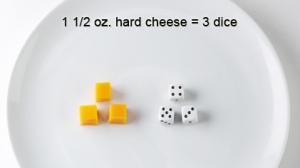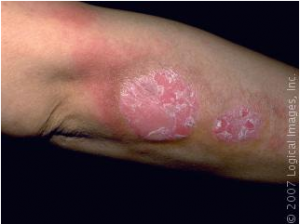As we come to the end of the special exhibit Changing the Face of Medicine, Celebrating America's Women Physicians at the Robert H. Lurie Medical Research Center here at Northwestern, we thought we’d provide a recap of some comments from our special exhibit event “Mentorship in Action” that occurred on December 7th. At this event, several Northwestern women spoke about their experience as mentors and mentees, including Dr. Neena Schwartz from the Department of Neurobiology and Physiology, whose career has certainly paved the way for all women in science and medicine.

Dr. Neena Schwartz
In her talk Dr. Schwartz addressed her own experience as a mentee and the status of women in medicine and research today, and gave her own recommendations for mentoring others. Her academic career began at Goucher College, which was an all women’s college at the time. She talked about her experience with mentors, some good and some not-so-good, but highlighted Meredith Runner from the Jackson Laboratory in Bar Harbor, Maine and Allen Lein from Northwestern’s physiology department. Dr. Schwartz acknowledged that despite these positive mentors, she was also faced with many hurdles as a woman in science, noting that when she was an instructor at the University of Illinois Medical School, it was thought inappropriate for a pregnant woman to lecture to medical students. In the 1950’s this was a typical attitude towards women, and something that Dr. Schwartz strove to overcome.
In 1971, at the annual meeting of the Federation of American Societies for Experimental Biology, Schwartz and a group of 27 other women colleagues founded the Association for Women in Science (AWIS) with the goal of increasing the number of women in tenure track positions and in study sections to review grants at the NIH. In 1974, AWIS sued the NIH forcing them to stop all appointments to study sections. They were to provide a list of all vacancies, a list totaling 413, to which AWIS responded with a list of 1000 qualified women scientists. Although a major hurdle, opinions of women in science did not seem to progress rapidly from there. Dr. Schwartz recalled being asked by a female graduate student if people laughed at her when she gave a paper at a meeting, to which Dr. Schwartz replied, “Only when I tell a joke.” This comment, however, stressed the importance of mentoring young women students in the sciences. Over the next several years other women societies starting forming including the Women in Endocrinology (WE) with which Dr. Schwartz was also involved. Although the presence of women in science and medicine has certainly increase over the last few decades, Dr. Schwartz brought up an article from 2006 in the New England Journal of Medicine that pointed out disparities still do exist in authorship of academic medical literature.
Lastly, Dr. Schwartz emphasized the importance of mentoring young female students stressing that a mentor should help a mentee define her research and career goals and nurture and guide her without stifling independent thought. She also pointed out that colleagues can often be mentors by recommending women for committees and talks and by offering to critique CVs. Overall Dr. Schwartz’s talk was informative and inspiring to the audience of both women and men from students to seasoned professionals.
Dr. Schwartz’s new book “A lab of My Own” will be available sometime in 2010.

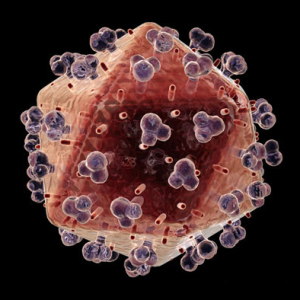
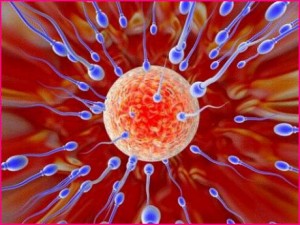
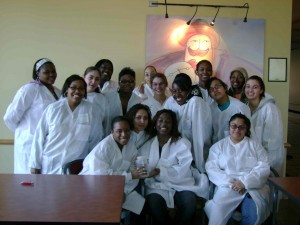 Recruitment for Oncofertility Saturday Academy (OSA) 2010 applicants officially began on Monday, November 9, 2009. This is the fourth consecutive year of OSA and we are expecting a very competitive pool of applicants from Young Women’s Leadership Charter School. OSA was initiated in 2007 by the Northwestern University and Young Women’s Leadership Charter School (YWLCS) of Chicago Science Partnership. Since its inception, a total of 46 YWLCS high school girls have participated in the OSA. Today, of the 46 students, two are college juniors, 15 are college sophomores, 14 are college freshman and 15 are 12th graders in high school. Of the 31 who are in college, most are actively pursuing science-related majors. OSA Directors and Coordinators will be contacting and surveying all OSA Alums this year to gather information about their most current academic and careers pursuits. Currently, OSA is also developing mechanisms and opportunities to provide long-term mentoring and support to the participants as they make the transition from high school to college and beyond.
Recruitment for Oncofertility Saturday Academy (OSA) 2010 applicants officially began on Monday, November 9, 2009. This is the fourth consecutive year of OSA and we are expecting a very competitive pool of applicants from Young Women’s Leadership Charter School. OSA was initiated in 2007 by the Northwestern University and Young Women’s Leadership Charter School (YWLCS) of Chicago Science Partnership. Since its inception, a total of 46 YWLCS high school girls have participated in the OSA. Today, of the 46 students, two are college juniors, 15 are college sophomores, 14 are college freshman and 15 are 12th graders in high school. Of the 31 who are in college, most are actively pursuing science-related majors. OSA Directors and Coordinators will be contacting and surveying all OSA Alums this year to gather information about their most current academic and careers pursuits. Currently, OSA is also developing mechanisms and opportunities to provide long-term mentoring and support to the participants as they make the transition from high school to college and beyond.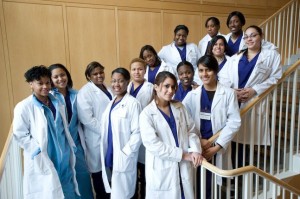 The Institute for Women’s Health Research created the Women’s Health Science Program for High School Girls and Beyond (WHSP). The Oncofertility Saturday Academy (OSA) is one of the four academies offered by WHSP to inspire and prepare the next generation of women leaders in science and medicine. To promote and encourage the high school girls to take action and live healthier lives, health workshops, nutritious meals and fitness classes are integrated into every academy. To learn more about all four academies, please visit whsp.northwestern.edu.
The Institute for Women’s Health Research created the Women’s Health Science Program for High School Girls and Beyond (WHSP). The Oncofertility Saturday Academy (OSA) is one of the four academies offered by WHSP to inspire and prepare the next generation of women leaders in science and medicine. To promote and encourage the high school girls to take action and live healthier lives, health workshops, nutritious meals and fitness classes are integrated into every academy. To learn more about all four academies, please visit whsp.northwestern.edu.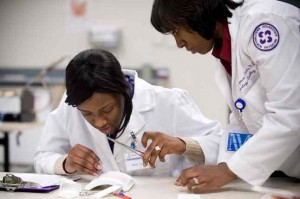
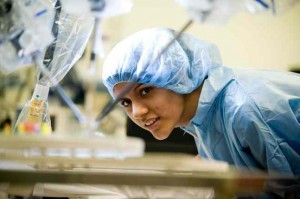
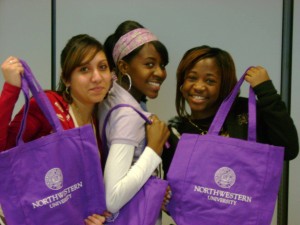
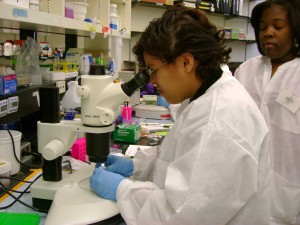
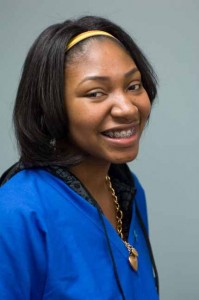
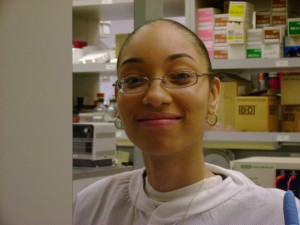
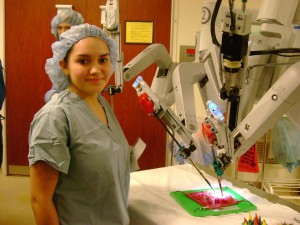
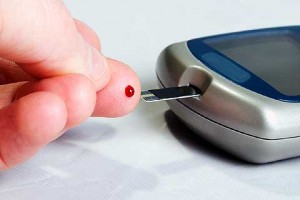
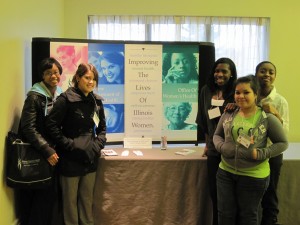
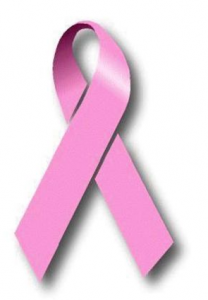 The most common symptom of breast cancer in both men and women is a lump in the breast, which is usually painless. Most breast lumps are non-cancerous, but it is still important to have any lumps evaluated by a physician. Other symptoms of breast cancer include clear or bloody discharge from the nipple, change in breast size or shape, retraction or indentation of the nipple and skin around the breast. Treatment for breast cancer often involves surgery, radiation therapy, and/or chemotherapy. A variety of surgical techniques are available depending on the size of the lump or tumor.
The most common symptom of breast cancer in both men and women is a lump in the breast, which is usually painless. Most breast lumps are non-cancerous, but it is still important to have any lumps evaluated by a physician. Other symptoms of breast cancer include clear or bloody discharge from the nipple, change in breast size or shape, retraction or indentation of the nipple and skin around the breast. Treatment for breast cancer often involves surgery, radiation therapy, and/or chemotherapy. A variety of surgical techniques are available depending on the size of the lump or tumor.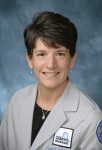
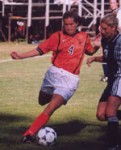 Now that Dr. LaBella has uncovered that neuromuscular exercises can prevent knee injuries, the challenge is to disseminate her findings to more high school coaches so the information can positively impact the ever-growing population of adolescent female athletes. Dr. LaBella shared that approaching high school coaches with the notion that they will enhance the athletic performance of their athletes rather than stressing the prevention of injuries is more convincing, and leads to better coach compliance with.respect to conducting the neuromuscular exercises with their female athletes. A non-ACL injured, healthy female athlete can spend more time on the field/court practicing their skills that will only contribute to a more successful team and season.
Now that Dr. LaBella has uncovered that neuromuscular exercises can prevent knee injuries, the challenge is to disseminate her findings to more high school coaches so the information can positively impact the ever-growing population of adolescent female athletes. Dr. LaBella shared that approaching high school coaches with the notion that they will enhance the athletic performance of their athletes rather than stressing the prevention of injuries is more convincing, and leads to better coach compliance with.respect to conducting the neuromuscular exercises with their female athletes. A non-ACL injured, healthy female athlete can spend more time on the field/court practicing their skills that will only contribute to a more successful team and season.